Top-level teams and riders get their way in the name of going faster
The uppermost tier of the sport is fueled in no small part by sponsorship funds, yet when it comes...
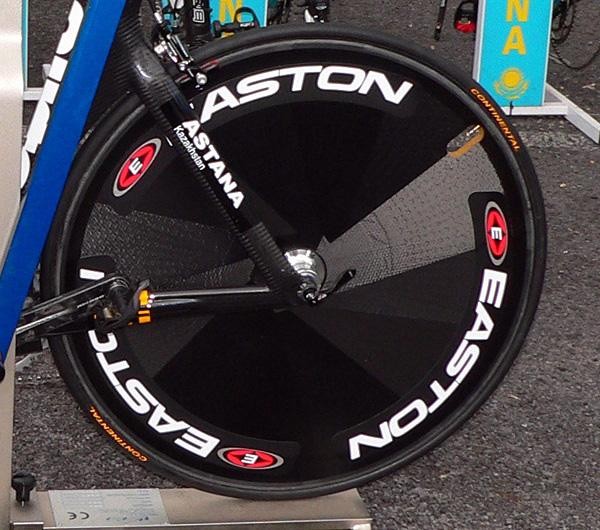
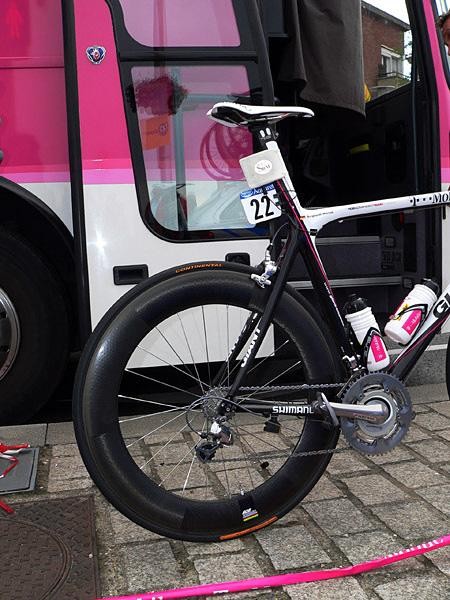
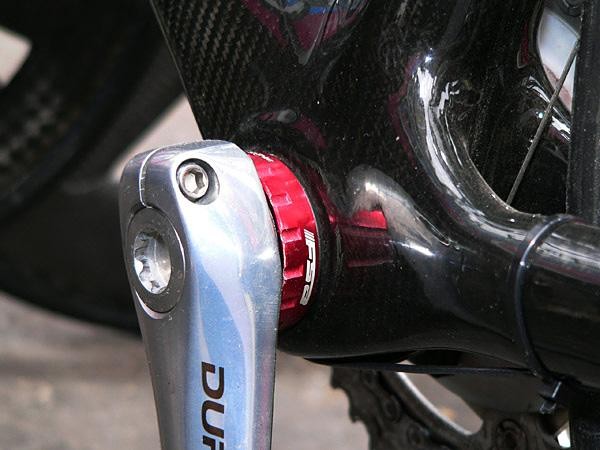
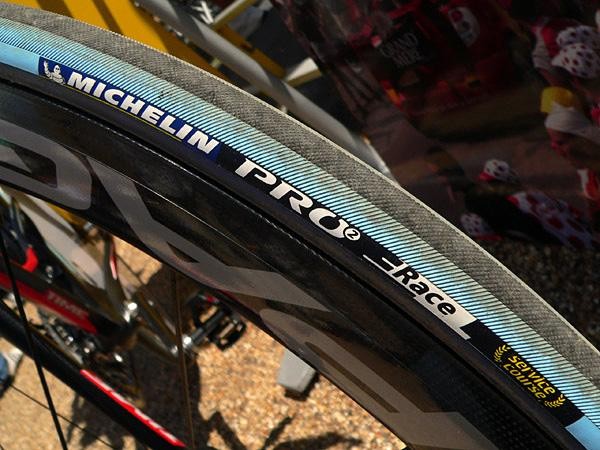
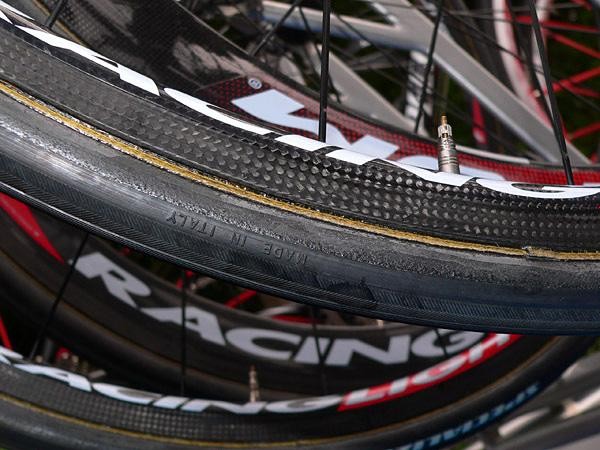
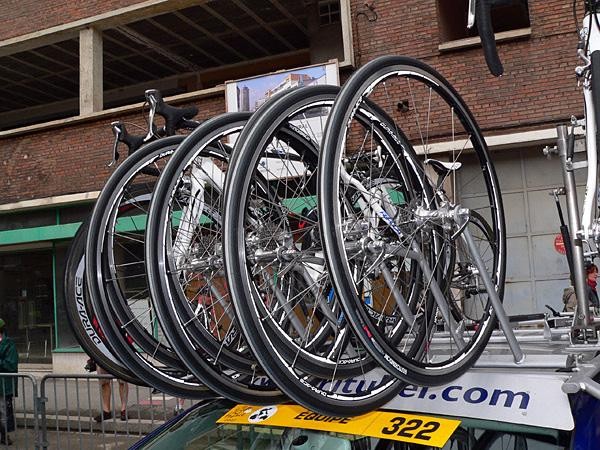
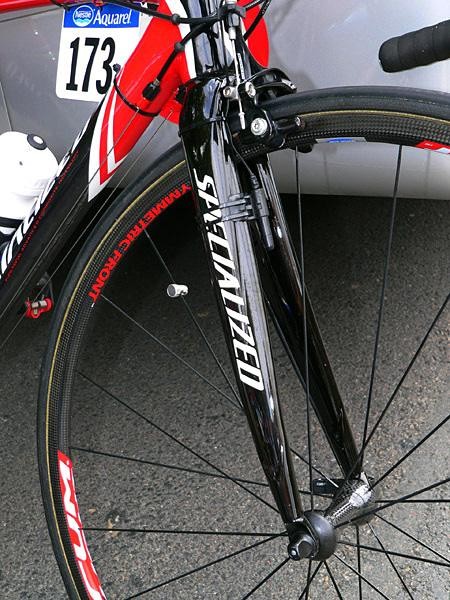
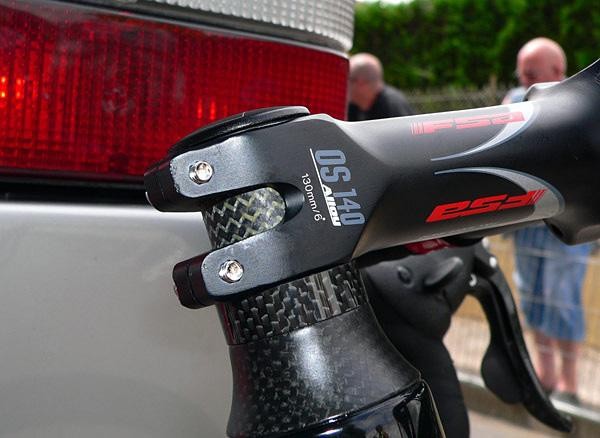
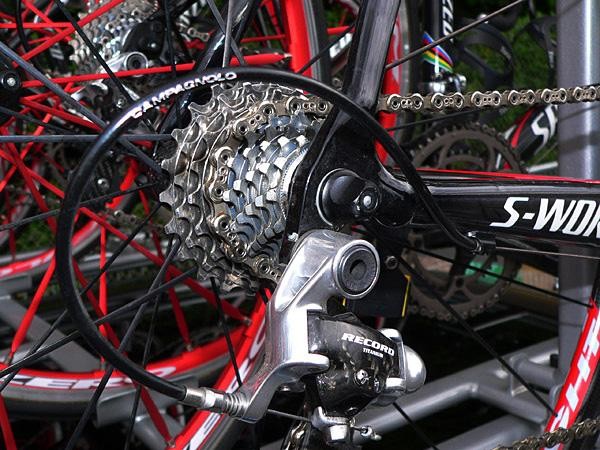
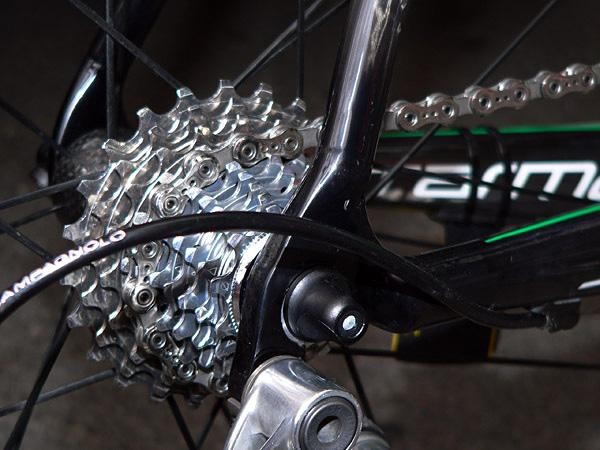


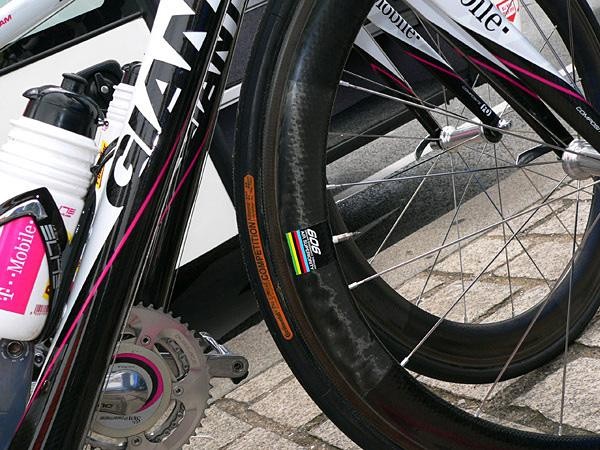
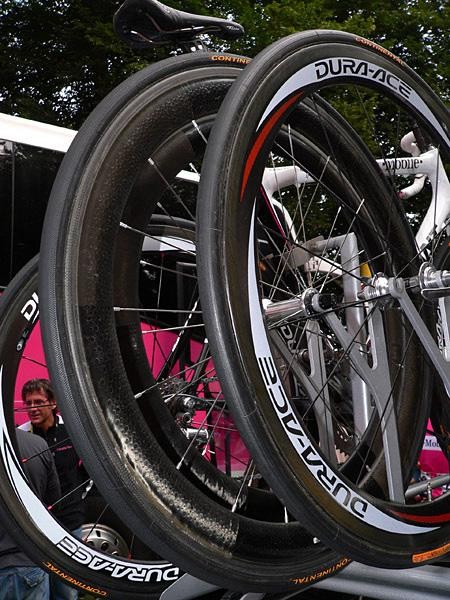


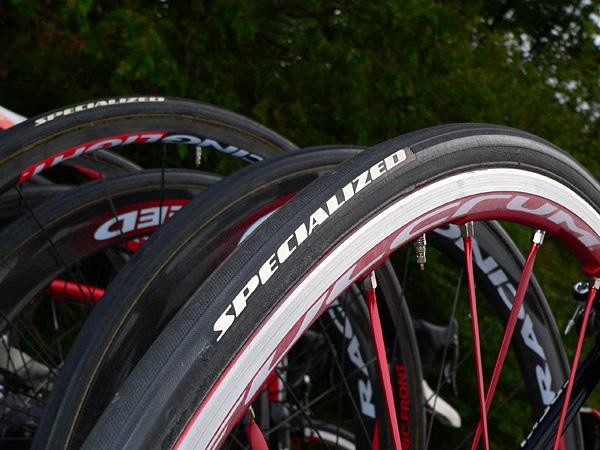
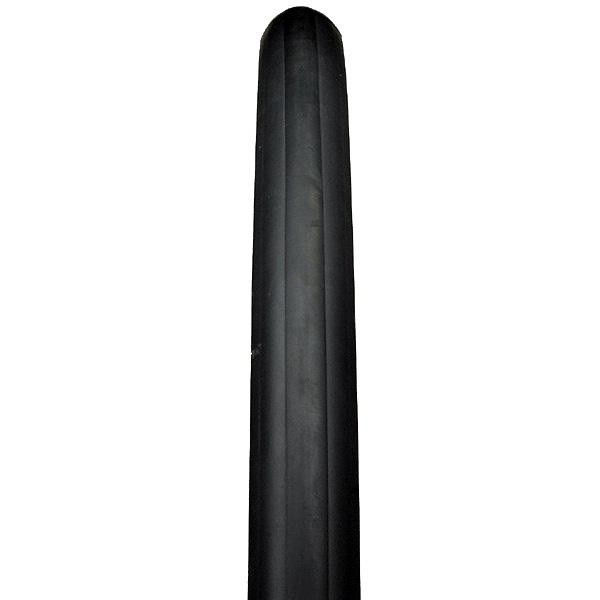






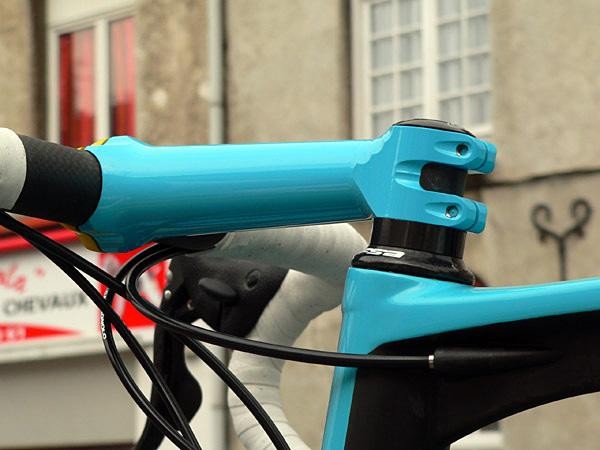
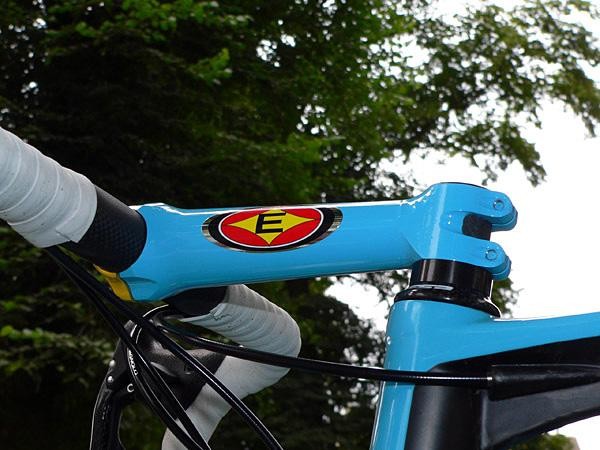
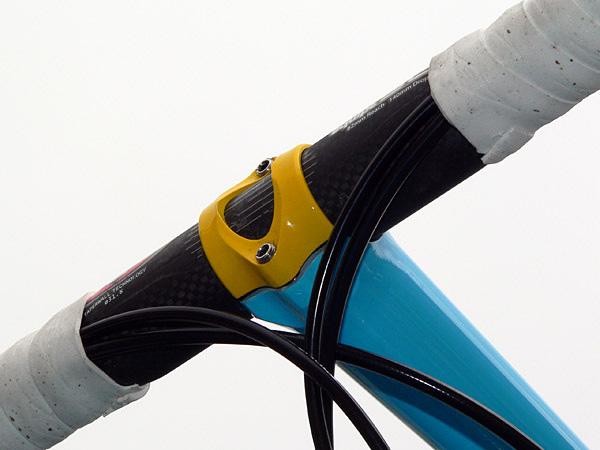
Race Tech: Tour de France, July 17, 2007
The uppermost tier of the sport is fueled in no small part by sponsorship funds, yet when it comes to bicycles and components, elite riders are clearly not limited solely to what they're supposed to be riding. Whether it be to satisfy rider preference or for a real (or just perceived) performance advantage, under-the-radar equipment changes are a relatively common aspect of racing and sponsors are apparently occasionally willing to look the other way if it means that they can still tie their name to a victory, even if it wasn't really on its product.
Swiss time trial framebuilder Andy Walser is perhaps one of the best known names within the ProTour, whose notable clients include Jan Ullrich, Levi Leipheimer, and Davide Rebellin among countless others. All of them sought the frame's supposedly superior aerodynamics courtesy of its uniquely narrow profile. Sadly, the vast majority of the viewing public has never heard of Walser as all of those frames were refinished in official sponsor colors to mask their true identity. Likewise, Lance Armstrong himself rather infamously used a repainted Litespeed Blade in his early days at US Postal Service.
Such complete frame substitutions are not nearly as common now (although not unheard of) as the vast majority of bicycle sponsors have been able to develop their own suitably high-tech machines. However, differences in personal preference and performance advantages still regularly come into play with componentry, particularly in wheels.
Easton is the official wheel sponsor of Alexander Vinokourov's Astana team, and its logos are bolded emblazoned on each of the rider's hoops. In this year's opening prologue, though, Astana riders flew through the streets of London on what were clearly Zipp carbon fiber rear disc wheels, complete with wind-cheating dimples and all.
Zipp also managed to find its way on to the riders of T-Mobile, most of whom spent the first week on the company's deep-section 606 tubulars (with nearly all of the decals removed). The team is officially sponsored by Shimano, and one T-Mobile mechanic was quick to point out that no 'official' relationship exists between the team and Zipp. He simply explained that, "We always try to use the best wheels, and Zipp is the best aerodynamic wheel for now. So we use them for the flat stages." So be it, but we can only imagine how Shimano feels about it.
T-Mobile has shown that it isn't terribly hesitant in making such substitutions if it means its riders can go faster. Some riders were also spotted using a new deeper version of HED's iconic three-spoke wheel for the opening prologue, and all of the team bikes we saw were rather surprisingly conspicuously fitted with red-anodized FSA MegaExo Ceramic bottom brackets mated to the team-issue Dura-Ace cranksets.
The latest race content, interviews, features, reviews and expert buying guides, direct to your inbox!
Tires were another prime target for clandestine swaps, and sponsors have become more skilled at removing original markings (or the tires were specially purchased label-free) and applying their own factory-look hot stamps. The entire Bouygues Telecom team, for example, ran tubulars for the prologue, and some riders chose them for the later stages as well. That is nothing unusual in and of itself, but for the fact that team tire sponsor Michelin doesn't currently offer a tubular tire in its catalog, particularly one with a classic file tread.
Likewise, Specialized-sponsored Quickstep-Innergetic has been running 'Specialized'-badged tubulars throughout the race so far, but it's obviously not a Mondo, the company's sole sew-up offering. A 'Made in Italy' logo suggests that they're probably made by Veloflex, which has proven to be a popular choice in the peloton.
Quickstep-Innergetic's Specialized frames weren't quite what they appeared, either. At last count, Tom Boonen has at least three specially finished S-Works Tarmac SL2 bikes at his disposal, and a few other teammates are on the new machine as well. While it's now well-known that Boonen's frames utilize a custom-molded front end with a longer top tube and extra carbon plies for additional stiffness, none of the rear ends of any of the SL2 frames used by the team are stock, either.
Production frames include a replaceable aluminum derailleur hanger as standard equipment, but the team bikes use one-piece dropouts with non-replaceable hangers. This obviously makes for more difficult (and sometimes impossible) repairs, but the solid dropout's increased rigidity probably yields snappier shift performance. As it turns out, Gerolsteiner's Tarmac SL2 frames are also similarly built.
Quickstep-Innergetic's standard Tarmac SL framesets aren't quite off-the-shelf units, either. The frames were truly stock offerings from what we could tell, but the team had replaced the Specialized forks with ones from Time (with Specialized decals applied over the plain black finish, of course). It all just goes to show that things are not always what they appear on the surface at the Tour de France. On to the mountain stages!